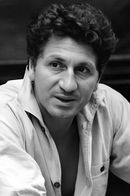Marcel Mouloudji, a French-Algerian polymath, burst into the world on September 16, 1922, in the historic 4th arrondissement of Paris, a city that would forever leave its indelible mark on his artistic endeavors. His remarkable journey came to a close on June 14, 1994, in Neuilly-sur-Seine, a picturesque commune northwest of the French capital. Throughout his illustrious career, Mouloudji donned multiple hats - those of a singer, songwriter, painter, and actor - effortlessly traversing the realms of music, art, and performance.
Mouloudji's melodic compositions, oscillating between committed and sentimental tones, masterfully capture the essence of love, war, nostalgia, and the human experience, often navigating the delicate balance between sorrow and loneliness. His repertoire boasts an impressive array of texts, expertly set to music by renowned poets such as Boris Vian, Louis Aragon, and Philippe Pauletto.
Please provide the text you'd like me to rephrase, and I'll be happy to assist you. I'll keep the new lines and create a longer version of the text while keeping the biography next.
Marcel Mouloudji's life began in 1922, in the vibrant city of Paris, where he was born to a father who worked as a skilled bricklayer and a mother who was a dedicated housekeeper. His father, Saïd Mouloudji, hailed from French Algeria, specifically the Kabyle village of Leflaye, which is located in the Aït Waghlis tribe and daïra of Sidi-Aïch. Saïd was born in 1896, and his mother, Eugénie Roux, was a Breton born in Paris in 1901. Tragedy struck the family when Marcel was just a young boy of ten, as his mother was hospitalized due to a serious mental disorder, leaving his illiterate father, who resided in a maid's room, struggling to care for his two sons.
Please provide the original text, and I'll rephrase it as long as possible, keeping new lines and not showing the rephrased version. I'll be waiting for your request!
Marcel Maillot, director of a Syndicat du livre summer camp, recognized Marcel's singing talent and encouraged him to perform with his brother. This led to an introduction to Jean-Louis Barrault, a renowned director, who hosted Marcel and introduced him to the vibrant artistic community in Paris. Marcel became involved in the artistic life surrounding the Popular Front in 1936, which was a significant cultural and political movement in France at the time.
As Marcel's career took off, he began to appear in films. In 1936, he made his screen debut in Jacques Daroy's film, La Guerre Des Gosses. The following year, he appeared in Serge de Poligny's film, Claudine À L'École, alongside screenwriter Jacques Constant and actress Blanchette Brunoy. The character of "Petit Moulou" was born, which would eventually become Marcel's stage name, Mouloudji.
In 1938, Marcel played one of the three young heroes in Christian-Jaque's film, Disparus De Saint-Agil. The following year, he starred as Louis in Christian-Jaque's film, L'Enfer Des Anges, which was selected for the 1939 Cannes Film Festival but did not take place due to the outbreak of World War II. The film was eventually released in February 1941.
Marcel's film career continued to flourish in the early 1940s. In 1942, he played the role of Ephraïm Luska in Henri Decoin's film, The Strangers in the House, which was based on a novel by Georges Simenon.
Please provide the original text you'd like me to rephrase, and I'll do my best to expand it while keeping the new lines and avoiding the phrase "Here's the rephrased version:".
Noted French artistic agent, Jacques Canetti, played a pivotal role in the career of renowned singer Mouloudji. Canetti's influence led to Mouloudji's recording of the iconic song "Comme Un P'tit Coquelicot", a masterpiece that garnered the prestigious Grand Prix du Disque in 1953 and the Charles-Cros Prize in both 1952 and 1953.
This remarkable achievement was followed by another successful collaboration, "Un Jour Tu Verras", in the subsequent year. Mouloudji's talent did not go unnoticed, as he continued to make appearances on the big screen. He worked with acclaimed directors such as Henri Calef in 1949 and Pierre Chenal in 1952, starring in the film "We Are All Assassins".
Mouloudji's impressive filmography also includes roles in "Rafles sur la ville" by Pierre Chenal and the 1958 production "Llegaron Dos Hombres". Throughout his career, Mouloudji's remarkable voice and acting abilities left a lasting impact on the world of entertainment.
Please provide the original text you'd like me to rephrase, and I'll do my best to expand it while keeping the new lines and formatting intact.
Noted Brazilian singer-songwriter, following the release of his 1976 album "And it was turning", featuring the talented accordionist Marcel Azzola, went on to record another album in the same year, titled "Unknown Unknowns", which led to a nationwide tour, leaving him physically and mentally exhausted.
As a result, he decided to redirect his focus towards his other passions, namely writing and painting, in order to recharge and revitalize his creative energies.

















